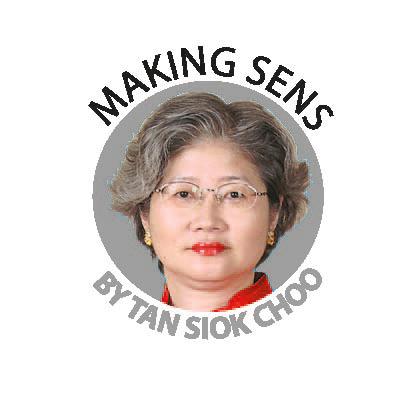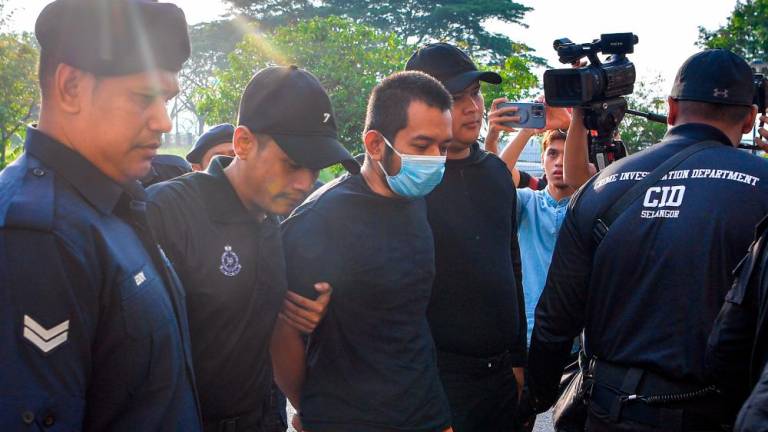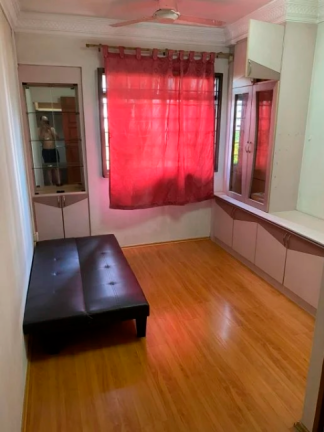IN 2019, my husband, Walter, and I visited Hong Kong a record four times. Walter’s work coupled with our travel and social commitments required flying to HK for Sotheby’s spring sale at end-March, vacationing in Shanghai, Beijing and the territory during the Raya holidays in June, attending Sotheby’s fall auction on Oct 3 and celebrating a wedding on Dec 20.
Street protests punctuated three out of four of our HK visits. Extending beyond Christmas and the start of a new year and the beginning of a new decade, the continuing chaotic and cacophonous crowds massed on the streets of HK prompts one question.
If the powers that be accede to the protesters’ key demand for universal suffrage will this reinvigorate Hong Kong’s economy and improve the well-being of its denizens? HK’s economy contracted by 3.2% in the third quarter (3Q) compared with the previous quarter, the sharpest fall since June 2009. A second successive quarterly contraction suggests the territory has slid into a recession.
HK’s street protests were triggered by a bill, proposed on April 3 last year, allowing suspects of criminal offences to be extradited to several countries, include China. This prompted fears the proposed legislation could be used to silence critics of the mainland.
Although the extradition bill was formally withdrawn on Sept 4 last year, this was seen as too little too late. The unrest continued, escalated and shifted to university campuses, culminating on Nov 17 in the siege of Polytechnic University in Kowloon. Riot police surrounded the campus, many students attempted to escape while hundreds were arrested.
Protesters’ continuing insistence on full voting rights highlights their belief the ballot box can resolve the territory’s deep-seated problems.
In September 2018, aid agency Oxfam issued a report noting that HK’s wealth gap – the Gini coefficient of 0.539 with zero indicating equality – was the highest in 45 years and exceeded that in the US (Gini coefficient of 0.411) and Singapore (Gini coefficient of 0.4579).
On average, the poorest have to work three years and eight months to earn what the richest make in one month, Oxfam added.
Compounding HK’s yawning wealth gap are rents higher than in New York, London or San Francisco for apartments half the size. Additionally, wages have lagged behind rents. Wages have increased by nearly a quarter over the past six years while housing prices have more than tripled over the past decade, a New York Times article written by Alexandra Stevenson and Jin Wu says.
Underscoring the lack of affordability, the median price of a house in HK is more than 20 times the annual median household income, Stevenson and Wu point out.
Some critics may claim this belief in the efficacy of the ballot box is naïve. The right to vote merely gives citizens an opportunity to choose their leaders; it doesn’t ensure the capability of those voted into power.
Acceding to demonstrators’ request for universal suffrage could go a long way towards ending the six months of protests. For their own reasons, the authorities appear reluctant to do so. Results of the recent district council elections may have exacerbated their concerns.
On Nov 24, pro-democracy candidates won 17 out of 18 district council elections and 392 of the 452 seats with a record 71.2% turnout among HK’s 4.1 million registered electors.
Admittedly, district councils have little decision-making power. However, district council members could be decisive if the outcome of the 2022 contest for HK’s chief executive is close. Out of 1,200 members of the election committee, district council members comprise 117 of the total.
Furthermore, HK is unique. Despite lacking the right to vote, the territory has been ranked the world’s freest economy for the past 24 years by the US-based Heritage Foundation and the number one for economic freedom by Switzerland’s International Institute for Management Development.
If HK opts for the ballot box, a critical issue is the electoral system adopted – first-past-the-post (FPTP) or proportional representation. The United Kingdom and most former British colonies – Malaysia, India and Singapore – opted for FPTP.
The drawback of the FPTP is the potential disconnect between the number of votes a political party receives and the number of constituencies won. In the UK elections in 2015, the Conservative share of the popular vote was 36.7% but the political party won almost 51% of political constituencies.
Although proportional representation is fairer, the outcome could result in no single political party winning the majority of parliamentary seats, prompting the need for coalition governments.
Voters are also notoriously fickle. In August 2009, the Democratic Party of Japan (DPJ) won a landslide victory, ending 54 years of almost unbroken rule by the Liberal Democratic Party (LDP).
Fed up with the DPJ’s failure to deliver the promised changes, in the 2012 polls, voters switched their support back to the LDP.
In any endeavour, outsize expectations will lead to outsize disappointments.
Opinions expressed in this article are the personal views of the writer and should not be attributed to any organisation she is connected with. She can be contacted at siokchoo@thesundaily.com














